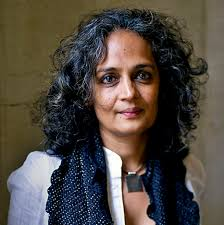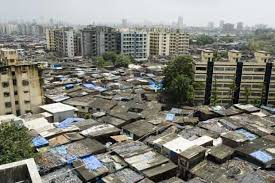
1/
Three-Bloody coups took place in Afghanistan in 20 months - Thread:
In the 70s, instability in Afghan politics started when in 1973 Daoud Khan overthrew King Zahir Shah with the support of far-left parties (PDPA).
In 1977 Daoud Khan started to take action against PDPA..

Three-Bloody coups took place in Afghanistan in 20 months - Thread:
In the 70s, instability in Afghan politics started when in 1973 Daoud Khan overthrew King Zahir Shah with the support of far-left parties (PDPA).
In 1977 Daoud Khan started to take action against PDPA..


2/
and refused to take orders from the Soviet Union. Things came to a head in 1977 when, during a visit to the Kremlin, Daoud had a flaming row with Brezhnev, who complained about the Afghan leader's seeking ties with Egypt, Saudi Arabia, and other countries.
and refused to take orders from the Soviet Union. Things came to a head in 1977 when, during a visit to the Kremlin, Daoud had a flaming row with Brezhnev, who complained about the Afghan leader's seeking ties with Egypt, Saudi Arabia, and other countries.

3/
Daoud raged back that Afghans made their own decisions, and at one point banged his fists on the table for emphasis. Brezhnev is said to have stared in cold fury, and some consider this meeting the beginning of Daoud's downfall.
Daoud raged back that Afghans made their own decisions, and at one point banged his fists on the table for emphasis. Brezhnev is said to have stared in cold fury, and some consider this meeting the beginning of Daoud's downfall.
4/
That year, the Khalq and Parcham sides of the PDPA reunited after prodding from the Soviets and the Indian Communist Party.
Everyone sensed that Daoud, now elderly, was vulnerable and that a coup waited for only a propitious opportunity.

That year, the Khalq and Parcham sides of the PDPA reunited after prodding from the Soviets and the Indian Communist Party.
Everyone sensed that Daoud, now elderly, was vulnerable and that a coup waited for only a propitious opportunity.


5/
The entire Afghan officer corps had been filtered through Soviet training grounds, and though the conscripts were from the tribes, the officers were largely in sync with the PDPA.
The entire Afghan officer corps had been filtered through Soviet training grounds, and though the conscripts were from the tribes, the officers were largely in sync with the PDPA.
6/
Fury showed on the Soviet President's face, Daoud had signed his own death warrant. In April 1978, a group of Marxist officers led an armored & air attack on the Arg Palace - where Daoud & his family lived. Palace was strafed by MiG-21s & Su-7s.
Fury showed on the Soviet President's face, Daoud had signed his own death warrant. In April 1978, a group of Marxist officers led an armored & air attack on the Arg Palace - where Daoud & his family lived. Palace was strafed by MiG-21s & Su-7s.
7/
By dawn Daoud and all his family were dead. Across the city, up to two thousand people had died in the fighting. Afghan leftist parties remember this coup as the “Saur Revolution”.
The Marxist military officers immediately handed power to the PDPA..
By dawn Daoud and all his family were dead. Across the city, up to two thousand people had died in the fighting. Afghan leftist parties remember this coup as the “Saur Revolution”.
The Marxist military officers immediately handed power to the PDPA..

8/
..which proclaimed the Democratic Republic of Afghanistan (DRA). Taraki (the head of Khalq) was made President and Karmal (Parcham) was given the position of deputy premier. A new flood of Soviet advisers arrived in the country as the PDPA settled into the halls of power.

..which proclaimed the Democratic Republic of Afghanistan (DRA). Taraki (the head of Khalq) was made President and Karmal (Parcham) was given the position of deputy premier. A new flood of Soviet advisers arrived in the country as the PDPA settled into the halls of power.


9/
Taraki cracked down on any opposition & tried to suppress them with brute force, within months armed resistance movements started & followed up by mass mutiny in the Afghan Army.
Revolts broke out everywhere. Pashtun tribesmen in the eastern mountains grabbed their rifles.
Taraki cracked down on any opposition & tried to suppress them with brute force, within months armed resistance movements started & followed up by mass mutiny in the Afghan Army.
Revolts broke out everywhere. Pashtun tribesmen in the eastern mountains grabbed their rifles.

10/
The Kunar Valley, the central Hindu Kush, and Badakshan became anti-government strongholds. The PDPA responded with mass arrests and executions.
Violent demonstrations erupted in Herat and the Afghan army's 17th Division, ordered to quell the riots, instead mutinied en masse
The Kunar Valley, the central Hindu Kush, and Badakshan became anti-government strongholds. The PDPA responded with mass arrests and executions.
Violent demonstrations erupted in Herat and the Afghan army's 17th Division, ordered to quell the riots, instead mutinied en masse
11/
..Taraki ordered loyal forces from Kandahar to cordon off the city while he dispatched two armored brigades from Kabul.
He then struck Herat and 17th Division headquarters with IL-28 bombers from Shindand airbase.
..Taraki ordered loyal forces from Kandahar to cordon off the city while he dispatched two armored brigades from Kabul.
He then struck Herat and 17th Division headquarters with IL-28 bombers from Shindand airbase.
12/
When the rebellion was finally crushed as many as five thousand people had died.
With the rapid degrading situation in Afghanistan, the Soviets then decided to remove Taraki. A plot was hatched in the Kremlin to remove Tarkai & install Hafizullah Amin.
When the rebellion was finally crushed as many as five thousand people had died.
With the rapid degrading situation in Afghanistan, the Soviets then decided to remove Taraki. A plot was hatched in the Kremlin to remove Tarkai & install Hafizullah Amin.
13/
In Sept 1979 Taraki was summoned to Moscow, upon his return, Amin had Taraki, the man formerly known as the "Great Teacher," executed a few weeks later by smothering him with a pillow.
In Sept 1979 Taraki was summoned to Moscow, upon his return, Amin had Taraki, the man formerly known as the "Great Teacher," executed a few weeks later by smothering him with a pillow.

14/
After four months Brezhnev decided to remove Amin as he began to renege on promises made to Moscow. During the first few days, the Soviets told Amin that they were there to save his revolution. In Dec-1979, the Christmas coup took place.
After four months Brezhnev decided to remove Amin as he began to renege on promises made to Moscow. During the first few days, the Soviets told Amin that they were there to save his revolution. In Dec-1979, the Christmas coup took place.
15/
Dressed like Afghan soldiers, Spetsnaz commandos broke into the grounds while hundreds of airborne troops assaulted the perimeter. Amin's guards fought back for four hours, at the end resisting from room to room inside the palace. But they were ultimately overcome.

Dressed like Afghan soldiers, Spetsnaz commandos broke into the grounds while hundreds of airborne troops assaulted the perimeter. Amin's guards fought back for four hours, at the end resisting from room to room inside the palace. But they were ultimately overcome.


16/
Reports held that Amin resigned to his fate, was killed while having a drink at a bar in the building. Soviets had their losses as well. Lt General Viktor S. Paputin, first deputy minister of internal affairs, was killed, as was a Colonel Bayerenov, who apparently emerged..
Reports held that Amin resigned to his fate, was killed while having a drink at a bar in the building. Soviets had their losses as well. Lt General Viktor S. Paputin, first deputy minister of internal affairs, was killed, as was a Colonel Bayerenov, who apparently emerged..
17/
from the palace to give orders, but being in Afghan uniform was shot by his own men.
Three-Bloody coups took place in Afghanistan in 20 months where their Presidents were brutally murdered.
**The End**
from the palace to give orders, but being in Afghan uniform was shot by his own men.
Three-Bloody coups took place in Afghanistan in 20 months where their Presidents were brutally murdered.
**The End**
• • •
Missing some Tweet in this thread? You can try to
force a refresh







